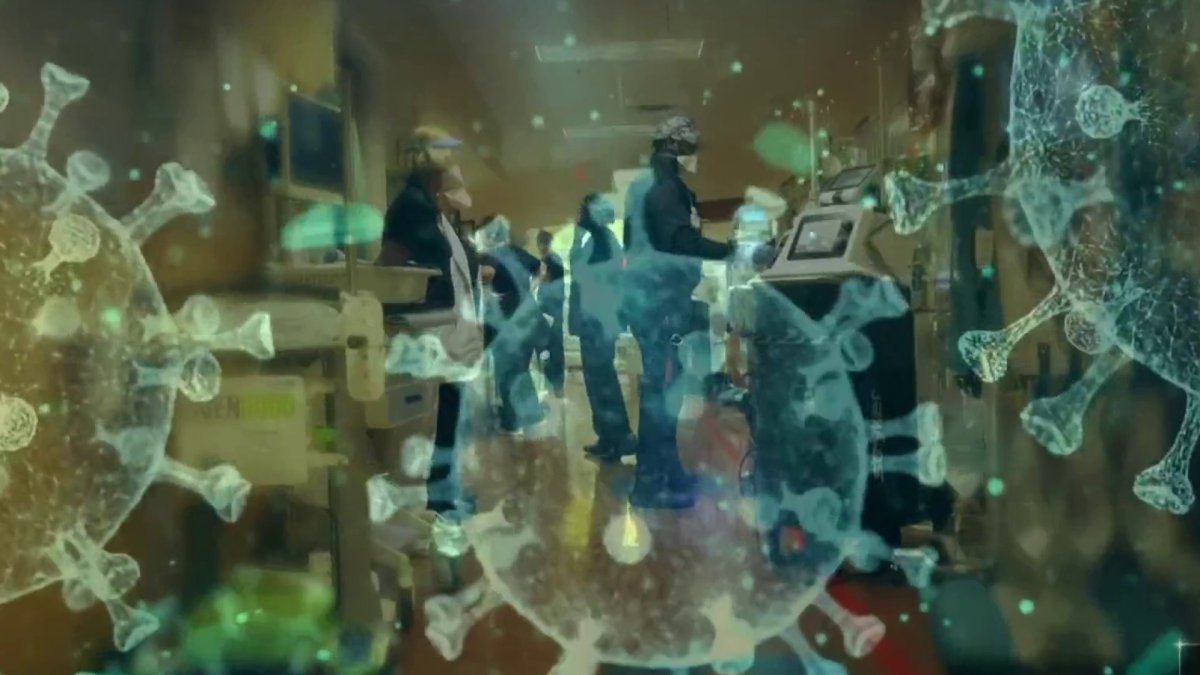
NBC Connecticut’s Dan Corcoran spoke with Dr. Howard Forman, a professor of public health at Yale University, about whether or not he believes the latest wave of the COVID-19 pandemic is peaking in Connecticut.
Doctors at Connecticut’s two largest health care systems say they believe the latest wave of the COVID-19 pandemic might be peaking in the state.
NBC Connecticut's Dan Corcoran spoke with Dr. Howard Forman, a professor of public health at Yale University, on the issue.
Dan: When you look at the numbers from today and yesterday, do you think that we've peaked?
Dr. Forman: "We're a small state, but we're also a big state. So, I believe that across the state on average, we have definitely passed the peak of transmission. We've almost certainly passed the peak of cases. We're probably at or slightly past the peak and hospitalizations now - or maybe just at it. And then we're going to see more deaths, unfortunately, as this continues to unfold. But we're on the good end of the curves now."
Get Connecticut local news, weather forecasts and entertainment stories to your inbox. Sign up for NBC Connecticut newsletters.
Dan: "We are all looking forward to this Omicron variant just fading away. But is it only a matter of time before another variant then comes up and puts us in the same position again? Is there any way to know how many waves of this virus we will actually have?"
Dr. Forman: "I will continue to insist everybody just remain humble. Every time I've heard people say ‘this is it’ and ‘it's now over,' all they do is prove to be wrong every single time. Certainly this wave turned out to be quicker-hitting, lower intensity on an individual basis; higher intensity on a population basis. We don't know what the future holds. It's a good thing, though, that for the first time, a wave has seemingly hit the entire country at the same time, so that we're not just watching one part of the country get hit hard, while another part recovers. I think that within the next month or two, most of the country will be a synchronized in recovery. And it will probably be true that 99% of the population will either have infection, or vaccine or both immunity at some degree."
Dan: "Does the fact that so many people got the Omicron variant change the game when it comes to reaching that idea of herd immunity?"
Local
Dr. Forman: "Herd immunity means that it stopped spreading. We're not going to get to that level, because what we've learned is that whether it's the vaccine or prior infection, it does not stop people from spreading. But what it does seem to indicate is that successive waves may be less severe than the vaccines and prior acquired immunity help prevent more severe disease. And we're going to have to keep looking at that, because that may or may not be true. We're hearing about a lot more reinfection cases that have been severe. So we're going have to keep following that. But it's certainly good that the vast majority of the population has some type of immunity now."
Dan: "We've talked to you several times throughout this pandemic. And we thank you for that. Looking at where we are now and where we've been, what are your thoughts? Do you still think there's a light at the end of this long tunnel? Have the past few months changed your perspective on anything?"
Dr. Forman: "We've learned how to live with this a lot better. We have not shut down our schools. We're starting to distribute higher-quality masks. We're learning that during peak transmission, using masks, getting boosted, limiting crowded events is going to help; even if it's not perfect, it helps. We've also learned that we can have some better times as we did over the summer. I think we just have to learn how to live with this as opposed to always being running from it. It does mean that we're going to continue to have to modulate how we live at various times during the year. But hopefully that will become second nature to us as opposed to disruptive all the time."